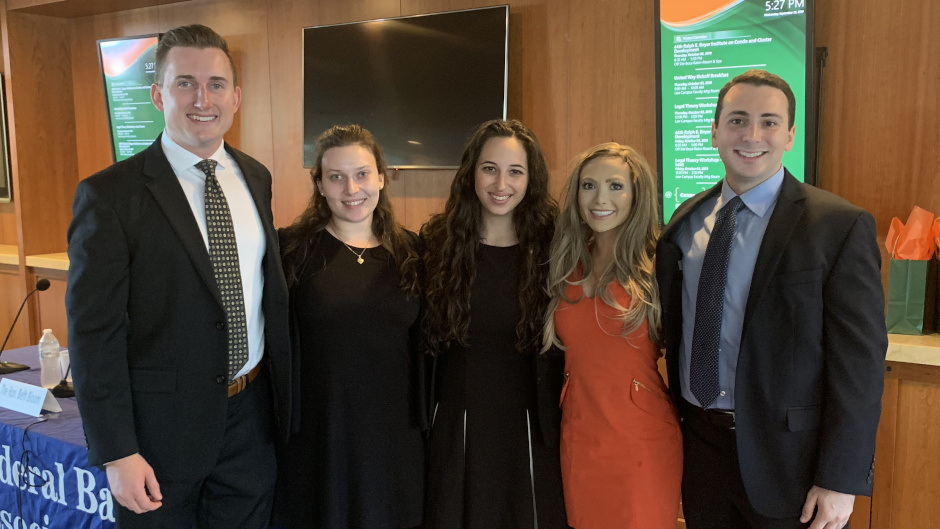Opportunity to Interact with Federal Judges
At the invitation of the Federal Bar Association, the Honorable Paul C. Huck, the Honorable Beth Bloom, J.D. ’88, and the Honorable Edwin G. Torres, all serving in the Southern District of Florida, came to Miami Law to share their anecdotes, experiences, and guidance on how attorneys should conduct themselves before a courtroom tribunal.
“The Federal Judge Panel on Courtroom Etiquette helped us,” said first-year student, Zev Chesel. “We got to meet and ask advice from judges that we hope to intern with and, down the line, appear before.
“As a 1L, I learned practical help on how to be professional in a legal environment and advice on how to focus on skill development in law school.”
Many Aspects of Legal Professionalism and Etiquette
Before a packed audience that included students of all levels, as well as faculty, staff, and local attorneys, the panel addressed the many dimensions of legal professionalism and etiquette.
Judge Bloom emphasized that the first responsibility of any attorney is to be an officer of the court and to conduct one’s self accordingly. Judge Huck stressed the value of common courtesy, not only to judges but to judicial staff and opposing counsel. Judge Torres warned that no attorney should be on the negative side of any judge’s memory, as judges speak among themselves.
Among the crucial takeaways were the importance of punctuality, decorum, good faith with opposing counsel, and knowing the facts of one’s case well.
Keys to Being Effective Legal Practitioners
“The panel was extremely insightful,” said Antonia Bernal, a third-year student. “As a law student, you rarely get the opportunity to interact with a federal judge, let alone three. Hopefully, this becomes a tradition for UM law.”
The event was put together by the UM chapter of the Federal Bar Association and sponsored by the Charles C. Papy, Jr. Moot Court Board and the International Moot Court Board. All three organizations help students in different ways to develop the knowledge, skills, and networks that will make them more effective legal practitioners.

